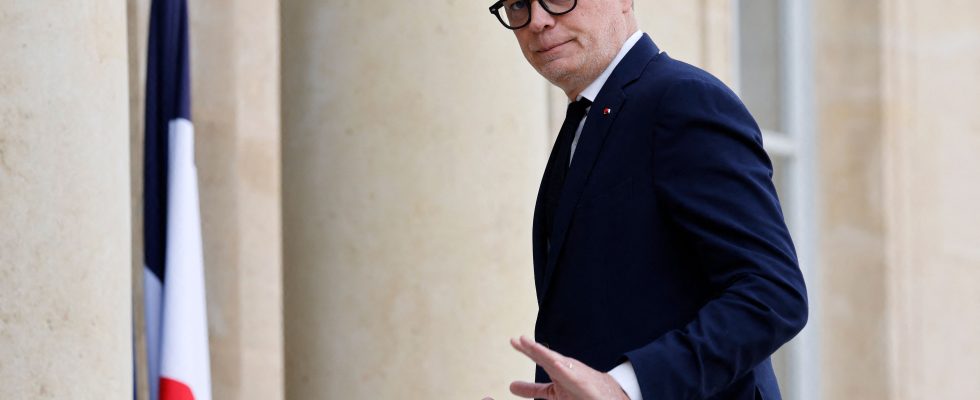“Ah, that’s interesting.” On the phone, Xavier Driencourt has the intonation of those who have obtained satisfaction. The former French ambassador to Algeria, from 2008 to 2012 then from 2017 to 2020, has just learned that Edouard Philippe wishes to “question” the Franco-Algerian agreement of 1968. Either the idea that the diplomat been defending for three years.
On July 14, 2020, he sent a confidential letter to five advisers from the Elysée and the Quai d’Orsay, including Emmanuel Bonne, the diplomatic adviser to Emmanuel Macron. A kind of testament, at the twilight of seven years in Algiers, in which the ambassador leaned towards… the renegotiation of this agreement. On May 22, 2023, Xavier Driencourt persevered, publicly this time. He signed a note for the Foundation for Political Innovation calling for “denouncing” the 1968 agreement. A text he “passed on to Gilles Boyer”, MEP and best friend of Edouard Philippe. This initiative, coupled with an interview at the Pointit seems to have hit the deep aggiornamento of the mayor of Le Havre on sovereign subjects.
The Franco-Algerian agreement of December 27, 1968 grants Algerians favorable immigration conditions in France. Any Algerian who obtains a job benefits from a five-year residence permit, which cannot be withdrawn except for fraud; family reunification is facilitated, exempt from conditions of integration and respect for the values of the Republic; undocumented Algerians are automatically regularized after ten years of residence. Clearly, the general provisions of immigration laws are not binding on them, and this will still be the case with the Darmanin bill, scheduled for the fall. Originally, this “privilege”, like the daily Echoroukthe most widely read in Algeria, named this situation, was quite assumed.
In the last months of Gaullist France, it was a question of encouraging Algerians to come and work in France. Certainly less derogatory than the Evian agreements of 1962, which provided for total freedom of movement for Algerians in France, this agreement of December 27, 1968 materialized the “exceptional partnership” between the two countries, which Jacques Chirac will praise for thirty-five years later.
Defferre’s laughter
Initially, the French leaders were tempted to deepen this particular relationship. At the beginning of the 1980s, Yves Bonnet, then very algérophile boss of the Directorate of Territorial Surveillance (DST), the interior secret services, even proposed to the Minister of the Interior Gaston Defferre, in an informal conversation, to start negotiations to grant freedom of movement in both countries to journalists, doctors and lawyers. A mini Evian accord. Defferre bursts out laughing. Too bold. It is with the same optimistic abnegation that Jacques Chirac proposed, in 2004, a Franco-Algerian friendship treaty. The project stumbled due to a law of February 23, 2005 on the compensation of harkis, which underlines, following maneuvers by the right wing of the UMP, “the positive role of the French presence overseas, especially in North Africa. A casus belli absolute for Algiers.
Times have changed. To the right of Emmanuel Macron, part of the political class has shifted. Before Edouard Philippe, Marine Le Pen, of course, but also Eric Ciotti called for the denunciation of the 1968 agreement. number of agreements with friendly or neighboring countries”. “I am thinking in particular of Algeria,” he added, without mentioning the Evian agreements, as his adviser Patrick Buisson whispered to him.
The current head of state, for the time being, remains attached to the “renewed partnership”, as he calls it, between the two countries. It is that one point distinguishes him from his competitors: he is currently in power. A breach of the 1968 agreement would cause a major diplomatic explosion. Edouard Philippe is not unaware of this: in his expression, he was also careful not to use the very connoted word of “denunciation”.
